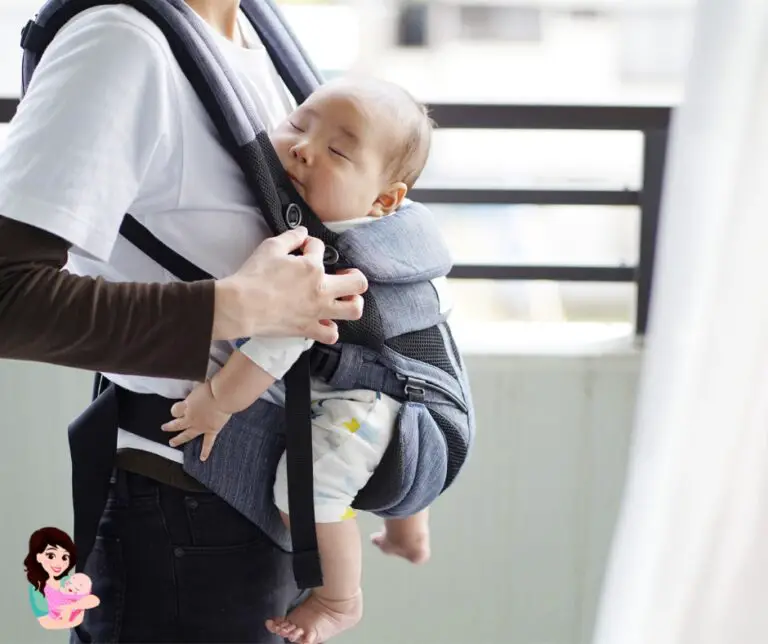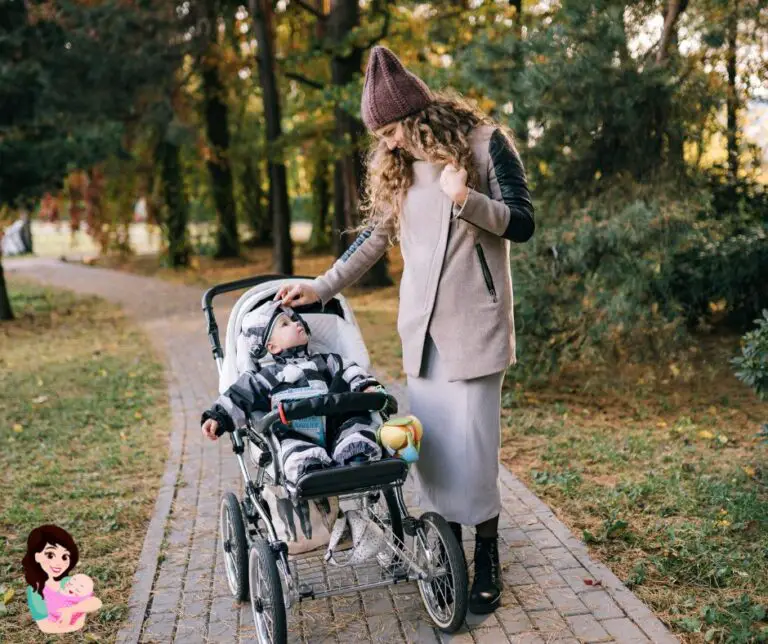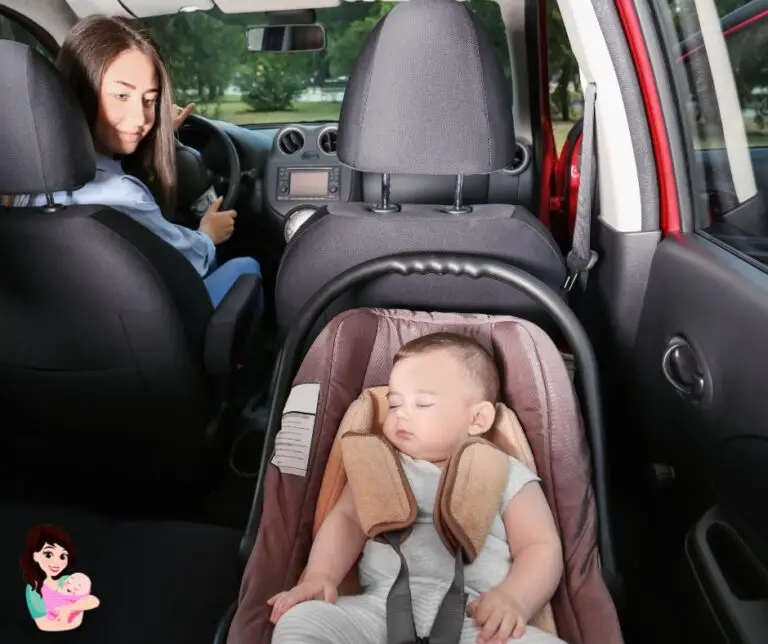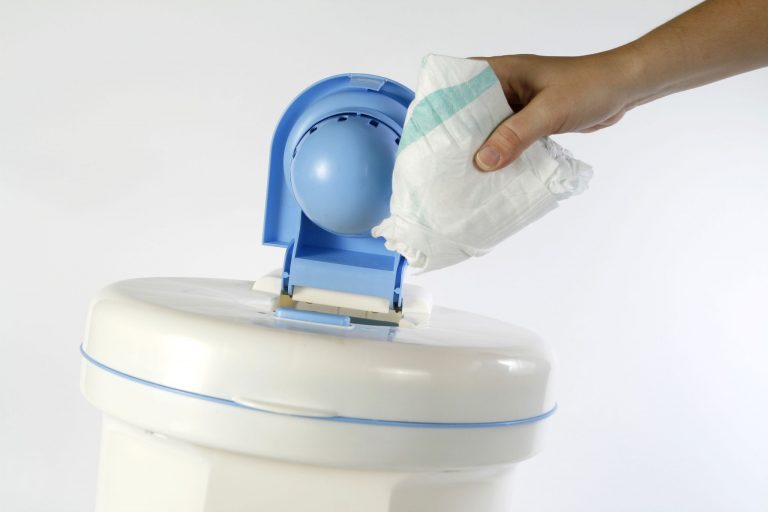
Car seats are a wonderful and necessary product that keeps your infant secure while you are driving. However, there are many restrictions and regulations around them, which can take time to stay on top of.
They designed car seats to protect young children in the event of a car accident. They are engineered with rounded edges and bumpers and are made to withstand extreme impact. However, is sitting in a car seat bad for a newborn baby?
Sitting in a car seat isn’t bad for your newborn baby, but it can cause problems if you aren’t careful.
According to many experts and car seat manufacturers, a baby should not ride in a car seat for more than two hours in 24 hours. This may also be referred to as “the 2-hour rule”. This is because keeping a baby in a semi-upright position for an extended period may strain the infant’s still-developing spine or restrict airflow to the baby’s lungs. If newborn falls asleep with their head slumped forward, the likelihood of this happening could rise.
What Are the Dangers if You Put a Newborn in a Car Seat?
Being confined in a car seat for too long isn’t ideal for babies who have just come into this world. There are some dangers if you put a newborn in a car seat before they are ready.
Here are some reasons why:
1. Breathing problems
A premature baby may not be able to support his head well enough; if he falls asleep while riding in the car, gravity can cause him to slump forward and compress his airway, making breathing difficult or impossible.
2. The baby’s head can flop around
The baby’s neck muscles aren’t strong enough yet to hold up their head against gravity, and they could end up with a stiff neck due to being strapped into an infant carrier for extended periods.
3. The baby’s spine can be compressed
This isn’t usually an issue if the child is in a rear-facing car seat, but it can happen if you use an infant carrier or other device that holds the baby upright. The AAP recommends putting babies to sleep on their backs to reduce the risk of SIDS and suffocation; using an infant carrier may make it more difficult to get them into this position at nap time.
4. Overheating
Overheating is another danger of using a car seat for your newborn: babies who aren’t ready for such intense heat exposure may overheat in their seats or have trouble breathing due to decreased oxygen flow through their lungs caused by restricted breathing space in between their chest and chin, which presses against them when they’re strapped into one of these gadgets (unless you’re careful about how much room there is between them).
5. It can cause hip dysplasia
When babies have their legs bent up against their stomachs for extended periods, they can develop hip dysplasia (a condition where the ball and socket joints are malformed). This often happens when babies are placed in car seats at birth. As they grow older and heavier, this condition also becomes more prevalent.
6. It can damage bones
Baby’s bones aren’t fully developed at birth, so putting them in a seated position too often can cause bone deformities like flat feet or bowed legs.
7. Injury or death
The baby’s head is not strong enough to withstand a car crash’s forces. It is more likely to get caught in the car seat during an accident. This can lead to skull fracture, brain injury, or death, even if you have a great safety record on the road.
When Can a Newborn Go in a Car Seat?
According to the American Academy of Pediatrics, babies should not be placed in a car seat until they are at least one month old. This is because their neck muscles are still too weak to support their head. If you put them in a car seat before they reach that age, they will be more likely to suffer from an injury while being transported.
In addition to waiting until your baby is older before placing them in a car seat, there are some other things you can do that will help keep them safe:
- Make sure it adjusted properly the straps and tight enough that it’s difficult for anyone to remove the baby from the seat by pulling on them
- Always ensure someone else is present when placing or removing your child from any safety device designed for transportation.
Should Infants Sleep in Car Seats?
Babies frequently fall asleep in the car, which is okay for a short period if they are being watched. However, car seats shouldn’t be used for sleeping and should only be used for transportation. For early newborns, a flat back position during sleep is advised.
Newborns should be placed in cribs, or bassinets designed for infants. We usually find these in baby stores and are portable enough to take with you wherever you go.
Infants can get injured if they’re left to sleep in car seats or other soft beds. In addition, using a car seat as a bed can cause airway obstruction and suffocation. This is because infants have small heads and faces, at risk of getting covered by blankets or pillows while sleeping in car seats.
The AAP states that using a car seat for an infant under one year old is not recommended because it does not provide a safe environment for infants to sleep in. Car seats are designed for use during travel and cannot be used safely at home until an infant is at least one-year-old, according to the American Academy of Pediatrics (AAP).
Conclusion
The bottom line is that a newborn baby shouldn’t be in the car seat all day. A couple of extra minutes in a carrier or car seat will cause minimal harm, but the time commitment over time can adversely affect your baby’s posture. In this one case, you would have to prioritize your baby’s safety over everything else. And if you do put your baby in a car seat, you should take precautions, such as making sure the straps are tight enough and avoiding prolonged periods of sitting.

Hi, This is Emma Baster; As a mom, I spend my free time caring for my kids. I’ve read a lot on the Internet to improve my childcare skill and bring the best to my kids. Eruditemommy shares my knowledge and experience through helpful posts. I hope you enjoy them!







